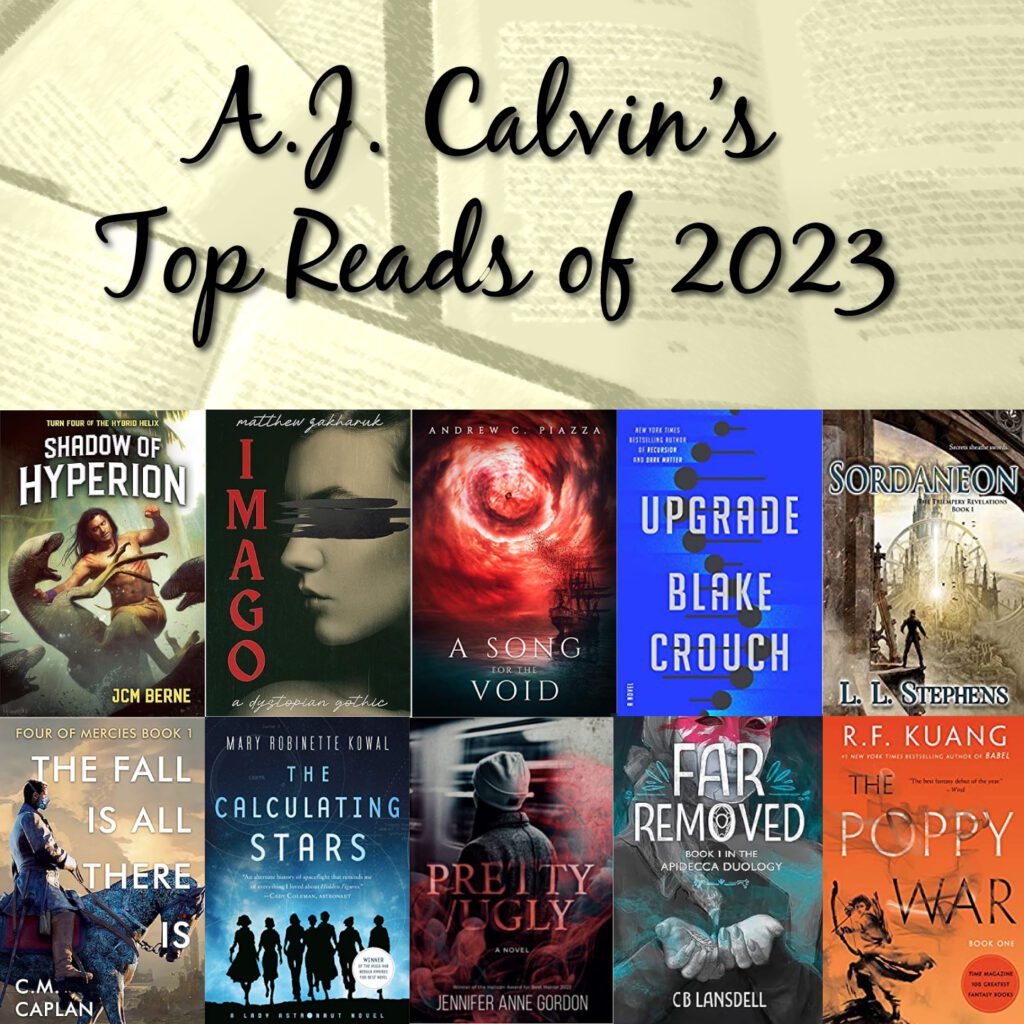
It was hard to narrow down my top reads of the year. For anyone who has followed me on social media or through my blog, you know I read a lot. This year’s total was 70 books, which I think is a record for me. And it was tough to pick only 10.
I’m a new addition to the FFA family, so not all of the books on my list have reviews from me on this site. I was reviewing for Escapist Book Co prior to their decision to close down, and I’m grateful to FFA for allowing me to join their team! I love sharing my passion for reading with the world, and this an excellent platform to do it on.
A quick breakdown of my favorites (because I’m a scientist and I like numbers sometimes):
- 3 Trad published
- 1 Small press
- 6 Indie books
- 1 Debut
- 2 Published in 2023
- 7 Published eariler
- 1 doesn’t release until January!
- And 2 SPFBO Finalists (from years 8 and 9)
So, without further preamble, here are my top 10 reads of the year (in alphabetical order, because I really can’t decide on an absolute favorite overall.)
A Song for the Void by Andrew C. Piazza
Synopsis:
A Mind Imprisoned Is The Greatest Of Hells.
1853. South China Sea. While on patrol between the Opium Wars, the crew of the steam frigate HMS Charger pursues a fleet of pirates that have been terrorizing the waters surrounding Hong Kong.
But now the hunters have become the hunted. Something else has come to the South China Sea, something ancient and powerful and malevolent.
Now, the crew of the Charger must face their worst nightmares in order to survive the terrible creature they come to know as the Darkstar.
A Song for The Void is a haunting, terrifying historical horror novel that will keep you turning the pages and jumping at the shadows.
What I liked most about this book: The atmosphere. It starts with a sense of “everything’s fine,” but gradually builds tension as little incidents continue to happen. It was eerie in the best sense of the word, and didn’t let up until the very end.
Far Removed by C.B. Lansdell
Synopsis:
On the moon of Knyadrea, the sea yields intelligent life. For a species shaped by tides, change is the only constant.
Little can be hidden in the glare of a spotlight.
Charismatic and innovative, Oklas Sayve has risen to prominence in Apidecca, the moon’s capital city. A politician and college director, he has the resources to effect the changes he envisions for the world. But the sovereigns he serves oppose him at every turn and his status cannot protect the low-strata students attending his college. After a young knyad is wrongly linked to insurgent activity, Oklas must find a way to smuggle her out of the city while hiding his involvement from the authorities.
A spark in the dank depths.
Below the grand Assembly Chambers, a knyad in a mask sculpts, grasping for scraps of beauty in her shrinking world. Years ago, Prismer made a costly mistake and now has only her job at the projection booth and a few special interests to fill her days. But it is not her sculptures that draw the attention of a powerful client, and she is soon met with a request to undertake a dangerous mission. Will she answer the call and risk losing the little she has left?
Mysteries surface. A supernatural substance is used in corrupt ways. As identities shift and predicaments are reshuffled, what alliances might be forged?
What I liked most about this book: The worldbuilding was incredible. Not only is it set on an alien moon, but the species both main characters belong to is completely unique. They’re based off oceanic creatures, and I still want to know more about how their biology works. (Yes, I will be reading book 2 when it’s available.)
Imago: A Dystopian Gothic by Matthew Zakharuk
Synopsis:
Forsake the world that hates you. Embrace its monster.
Tresor Institute accepts only the worthy, and Ada Călinescu is anything but. Intractable, mannish, a child of convicted terrorists, she can at best hope to be overlooked. Yet somehow the Institute accepts her application for transfer. Her ticket to the polar town of Heilung, home of the Institute, arrives free of charge.
Her only chance to forge a brighter future.
Except Heilung welcomes Ada with news of a brutal murder. Militiamen stalk the town, keen to fill their arrest quotas—and Ada knows she could make an easy scapegoat. At every turn the bloody conspiracy follows her, from the halls of Tresor to the arms of a stranger she yearns to make hers. What starts as a dalliance risks putting Ada at odds with the Bureau itself.
And then expulsion will be the least of her concerns.
What I liked most about this book: Its prose. It has a beautiful, literary style that I couldn’t get enough of. Paired with the dystopian/horror vibes of the story, it was nothing short of perfect.
Pretty/Ugly by Jennifer Anne Gordon
Synopsis:
Omelia fills the empty place in her heart with Instagram clicks, likes, and subscribes, hiding the scars of grief under a mask of makeup, cloaked in an online personality. She yearns to be someone new: a girl in a magazine, a character in a book, a beauty queen. Anything not to feel, to be numb, but the sharp pain accompanying the red spot on her face cannot be ignored. Nor can the black, spindly tarantula-like vines that creep up the side of her face and the fever she spikes, forcing her to confront the fact that the person she has become may not be who she is at all.
Dubbed ‘the New JFK,’ Sam is the heir apparent to a powerful but emotionally distant political family, living the life he neither dreamed nor wanted. He sleepwalks through his days filled with self-loathing, rage, boredom, and an ache under his heart that reminds him that he is not complete. He is roused from slumber when a political scandal erupts that coincides with the end of the world. Too many Adderall and Old-Fashioneds leave Sam wondering, is he crazy or haunted?
When lives are emotionally ended in childhood, it takes an apocalypse to see the ephemeral beauty of living again.
What I liked most about this book: As some of you know, I’m a microbiologist outside of the book world. This book got the science right, and the virus type mentioned made this story completely plausible, which added to the creep factor significantly. It’s also written in a haunting style that added so much to the apocalyptic atmosphere of the story.
Shadow of Hyperion by J.C.M. Berne
Synopsis:
Rohan once served the Empire. At great cost, he earned his freedom, and has since sought nothing more than to finish his shift in peace and figure out where his love life is going.
Then he receives a message from Earth, calling in a favor. A plea for the kind of help only The Griffin can provide.
Reluctantly, he recalls his mentor. The man who taught him how to live with his cursed Power. A man who had been the galaxy’s greatest hope, before the il’Drach sent him to his death.
What would Hyperion do?
What I liked most about this book: ROHAN! The main character of this series is what first drew me in, and it has been fun following his adventures so far. I felt Rohan grew up a bit in this book as he faced the demons from his past, but there were still just as many laugh-out-loud moments as there were in previous books.
Sordaneon by L.L. Stephens
Synopsis:
Dorilian is blood bound to the Rill, a quasi-living artifact that spans continents and empowers a privileged few to reap the riches of an entire civilization. The problem is, decades after seizing control of the remaining god-machines, those privileged few aren’t willing to give up their power—even if that means imprisoning and destroying the human bloodline to which the Rill is tethered.
To reawaken the Rill and save their world, its ruler Marc Frederick must find a way to win over Dorilian Sordaneon, the last scion of the divine house that once controlled the Rill. Unfortunately, Dorilian hates him. And his family. And… everything.
What I liked most about this book: The worldbuilding is nothing short of epic in scale. It isn’t just the locations or the people, but there’s so much lore and history too. And the characters are incredibly well done. There’s a depth to each of them, even those who seemingly have a small role in this book. (There are two more books available in this series, and I’ve read them too, but I chose Sordaneon for this list because you can’t jump into the story without reading this one first.)
The Calculating Stars by Mary Robinette Kowal
Synopsis:
On a cold spring night in 1952, a huge meteorite fell to earth and obliterated much of the east coast of the United States, including Washington D.C. The ensuing climate cataclysm will soon render the earth inhospitable for humanity, as the last such meteorite did for the dinosaurs. This looming threat calls for a radically accelerated effort to colonize space, and requires a much larger share of humanity to take part in the process.
Elma York’s experience as a WASP pilot and mathematician earns her a place in the International Aerospace Coalition’s attempts to put man on the moon, as a calculator. But with so many skilled and experienced women pilots and scientists involved with the program, it doesn’t take long before Elma begins to wonder why they can’t go into space, too.
Elma’s drive to become the first Lady Astronaut is so strong that even the most dearly held conventions of society may not stand a chance against her.
What I liked most about this book: The idea that a single event can alter the course of history in the most profound way, yet events still unfold in a similar pattern to what actually occurred in our past. I also loved that the main character overcame the gender biases of the time to follow her dreams. It was inspirational.
The Fall Is All There Is by C.M. Caplan
Synopsis:
All Petre Mercy wanted was a good old-fashioned dramatic exit from his life as a prince. But it’s been five years since he fled home on a cyborg horse. Now the King – his Dad – is dead – and Petre has to decide which heir to pledge his thyroid-powered sword to.
As the youngest in a set of quadruplets, he’s all too aware that the line of succession is murky. His siblings are on the precipice of power grabs, and each of them want him to pick their side.
If Petre has any hope of preventing civil war, he’ll have to avoid one sibling who wants to take him hostage, win back another’s trust after years of rivalry and resentment, and get an audience with a sister he’s been avoiding for five years.
Before he knows it, he’s plunged himself into a web of intrigue and a world of strange, unnatural inventions just to get to her doorstep.
Family reunions can be a special form of torture.
What I liked most about this book: That it was so different than the typical fantasy book. There are some very cool concepts as I mentioned above, the main character is autistic (which makes for some painful and heartbreaking moments), and the politics were nothing short of chaos. This book embraced its unusual nature and ran with it, which made it so much fun.
The Poppy War by R.F. Kuang
Synopsis:
When Rin aced the Keju—the Empire-wide test to find the most talented youth to learn at the Academies—it was a shock to everyone: to the test officials, who couldn’t believe a war orphan from Rooster Province could pass without cheating; to Rin’s guardians, who believed they’d finally be able to marry her off and further their criminal enterprise; and to Rin herself, who realized she was finally free of the servitude and despair that had made up her daily existence. That she got into Sinegard—the most elite military school in Nikan—was even more surprising.
But surprises aren’t always good.
Because being a dark-skinned peasant girl from the south is not an easy thing at Sinegard. Targeted from the outset by rival classmates for her color, poverty, and gender, Rin discovers she possesses a lethal, unearthly power—an aptitude for the nearly-mythical art of shamanism. Exploring the depths of her gift with the help of a seemingly insane teacher and psychoactive substances, Rin learns that gods long thought dead are very much alive—and that mastering control over those powers could mean more than just surviving school.
For while the Nikara Empire is at peace, the Federation of Mugen still lurks across a narrow sea. The militarily advanced Federation occupied Nikan for decades after the First Poppy War, and only barely lost the continent in the Second. And while most of the people are complacent to go about their lives, a few are aware that a Third Poppy War is just a spark away . . .
Rin’s shamanic powers may be the only way to save her people. But as she finds out more about the god that has chosen her, the vengeful Phoenix, she fears that winning the war may cost her humanity . . . and that it may already be too late.
What I liked most about this book: That it didn’t shy away from describing just how ugly war can be. And it wasn’t just the battle scenes, but the aftermath depicted too. Beyond that, the story line was fascinating. I plan to read the rest of the series in the future.
Upgrade by Blake Crouch
Synopsis:
“You are the next step in human evolution.”
At first, Logan Ramsay isn’t sure if anything’s different. He just feels a little . . . sharper. Better able to concentrate. Better at multitasking. Reading a bit faster, memorizing better, needing less sleep.
But before long, he can’t deny it: Something’s happening to his brain. To his body. He’s starting to see the world, and those around him—even those he loves most—in whole new ways.
The truth is, Logan’s genome has been hacked. And there’s a reason he’s been targeted for this upgrade. A reason that goes back decades to the darkest part of his past, and a horrific family legacy.
Worse still, what’s happening to him is just the first step in a much larger plan, one that will inflict the same changes on humanity at large—at a terrifying cost.
Because of his new abilities, Logan’s the one person in the world capable of stopping what’s been set in motion. But to have a chance at winning this war, he’ll have to become something other than himself. Maybe even something other than human.
And even as he’s fighting, he can’t help wondering: what if humanity’s only hope for a future really does lie in engineering our own evolution?
What I liked most about this book: I loved that this book addressed both sides of the debate regarding genetic modifications and showed how devastating even a well-intentioned experiment can be. Science is often beneficial, but it can also be very dangerous; as a scientist myself, I appreciated that aspect of the story.

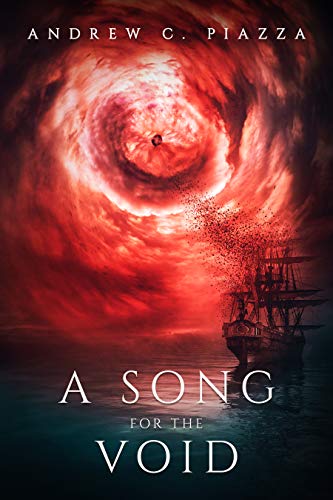
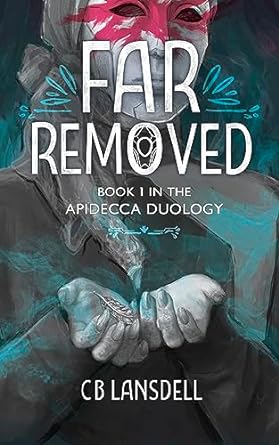
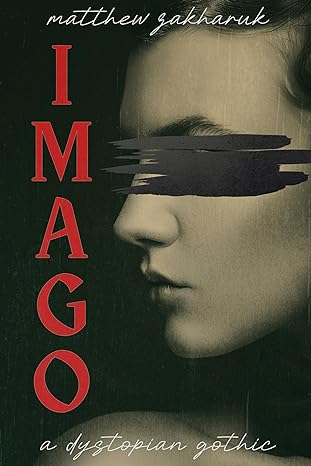


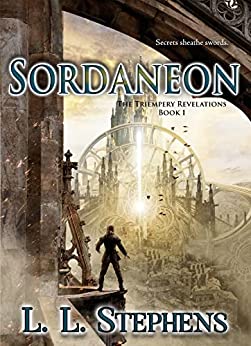
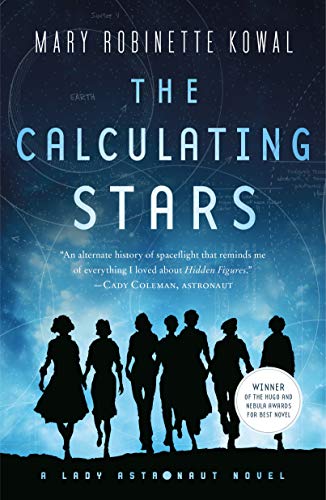
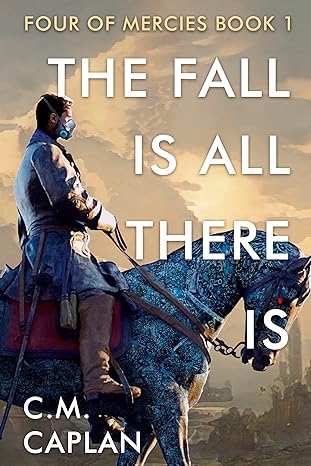
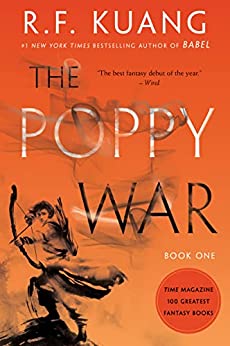
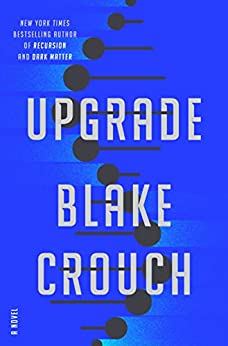
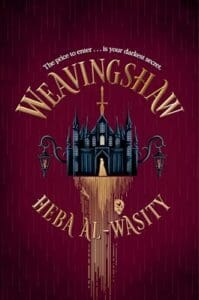
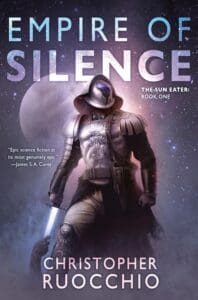
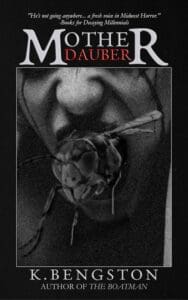
Leave a Reply